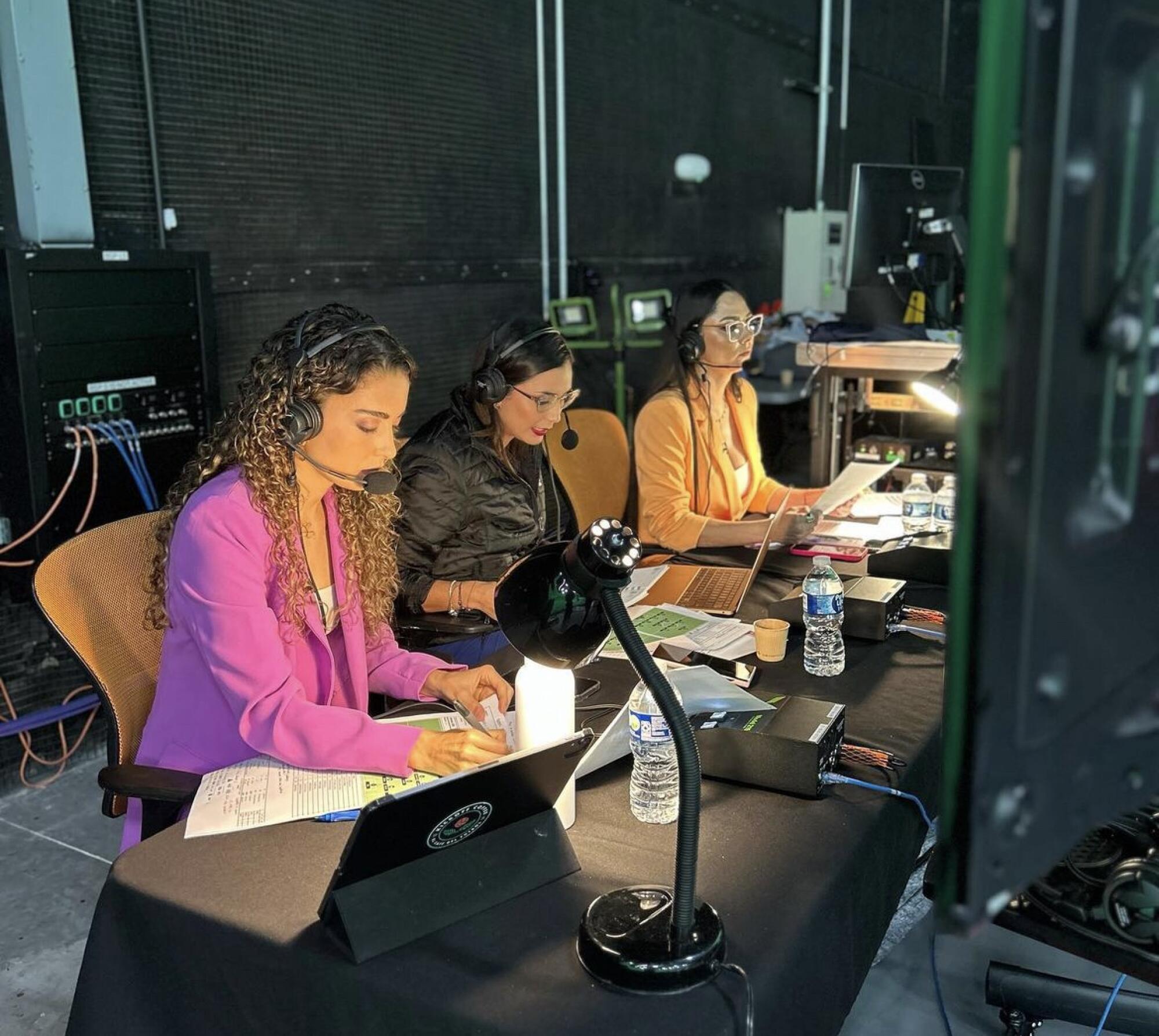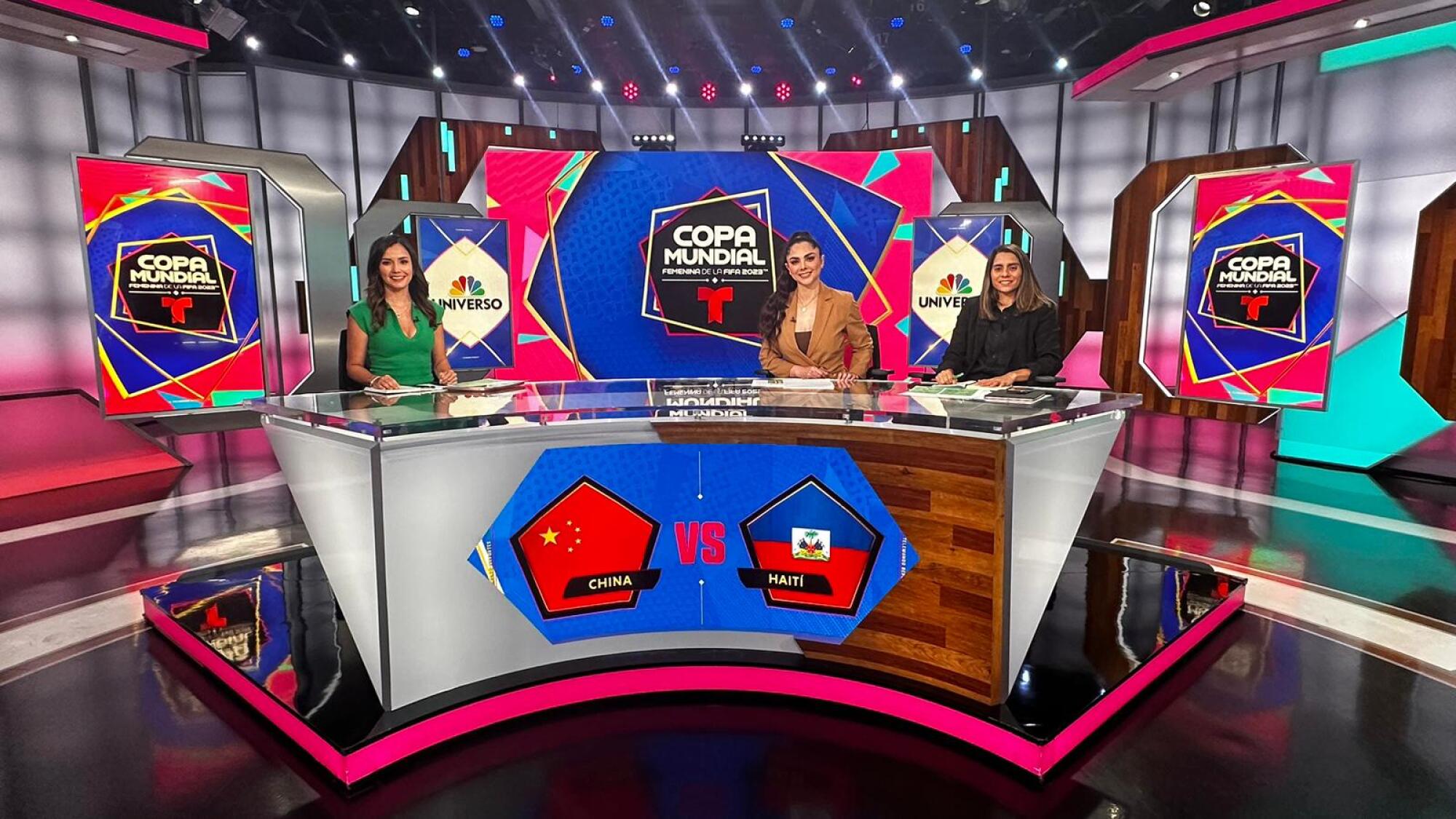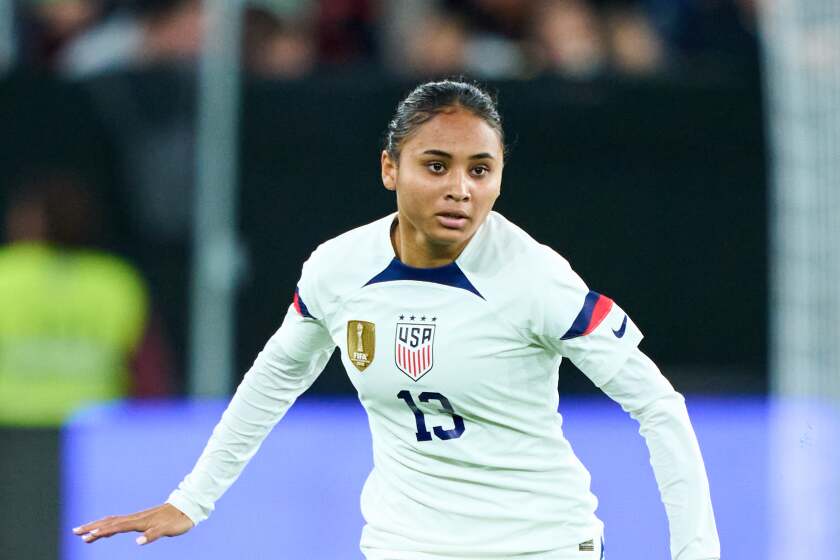
- Share via
One of the lasting memories of the current Women’s World Cup will surely be the retirement of Brazilian legend Marta, who bid an emotional farewell to the sport after her team was eliminated in the group stage by Jamaica.
The best goal scorer in World Cup history responded to a question by a journalist by reminding everyone, players and reporters alike, how far they have come.
“You know what is great? When I started there wasn’t a female star. You wouldn’t show women’s matches. How could I dream of playing for my country and being a star?” said Marta, who has scored in five different World Cups in her storied career.
El equipo de mujeres de Telemundo fue el más grande en la historia de una Copa del Mundo en la televisión hispana.
“Twenty years later we have become symbols for the rest of the world. Not just in soccer, but in journalism. Now we see women here, and before we wouldn’t see that. We ended up opening the door for equality,” said the Brazilian star, referring to the reporters present at her press conference.
A witness to the changes that Marta detailed is Daniella López Guajardo, who has served as an announcer for Telemundo during the tournament. Recently, the native of Torreon, Coahuila, was part of the first all-female commentary team for Spanish-language TV in the United States. During 18 matches of this World Cup, Lopez Guajardo has been joined by Janelly Farías, Kenti Robles, Isabella Echeverrí and Diana Rincón.

“It is an honor to be able to call games that will transcend soccer and become important moments for these players,” said López Guajardo. “It is a major responsibility being the first woman to call games in Spanish for U.S. television. Bringing to people my experience is a huge responsibility.”
Women’s soccer is seeing an increase in interest worldwide and not just in the players on the pitch and journalists behind the microphones. During the World Cup of 1991, there were only six female referees, all assistant linespeople, except for Claudia Vasconcelos, who was the referee for the third-place match.
By 1995, seven of the 12 referees were women and the final featured a woman as referee. And in 1999, all the officials were women.
Still, there is a long way to go.
Alyssa Thompson, who is half Peruvian, brings a dynamic approach to the U.S. team with her speed and grit.
For example, there is still a lack of female managers. During this World Cup, the first with 32 teams, started with 12 women leading a national team. It was the same percentage as the last World Cup in 2019 when there 24 teams participating — 37.5%
For Echeverrí, now retired after a career as a player, it is special to be part of the change seen over the last decade. She mentioned that when she started playing professionally there were no women managers.
“As a society we are changing. Women should have always been part of football’s ecosystem, but now we are seeing real change,” said Echeverrí. “It is just the start of a revolution inside and outside the pitch.”
One of the most emotional moments of the tournament for his group of women came during the Colombia vs. Germany match. One of the surprises of the tournament, Colombia defeated Germany in a tight 1-0 match that allowed the South American team to advance to the knockout stage.

Echeverrí, originally from Medellín, Colombia, said it was a special moment hearing her colleagues call the winning goal.
“It’s been a revelation, especially working with three other women during a Colombia match,” said Echeverrí. “When I played, you wouldn’t hear women doing commentary and talking about soccer.”
Telemundo’s team also includes Spaniard Natalia Astrain, former manager of Barcelona women’s team, Venezuelan player Deyna Castellanos, who plays for Manchester City, and the referee Lucila Venegas. The coverage from Australia also includes the host Ana Jurka from Honduras and Carlota Vizmanos from Spain. Verónica Rodríguez also hosts the late-night highlight show “Zona Mixta.”
“We want to thank Telemundo for giving 10 women the opportunity to be front and center on this coverage, and to all the women that the viewers don’t see that handle the day-to-day operations, there are a lot of women here,” said López Guajardo.
More to Read
The Latinx experience chronicled
Get the Latinx Files newsletter for stories that capture the multitudes within our communities.
You may occasionally receive promotional content from the Los Angeles Times.










